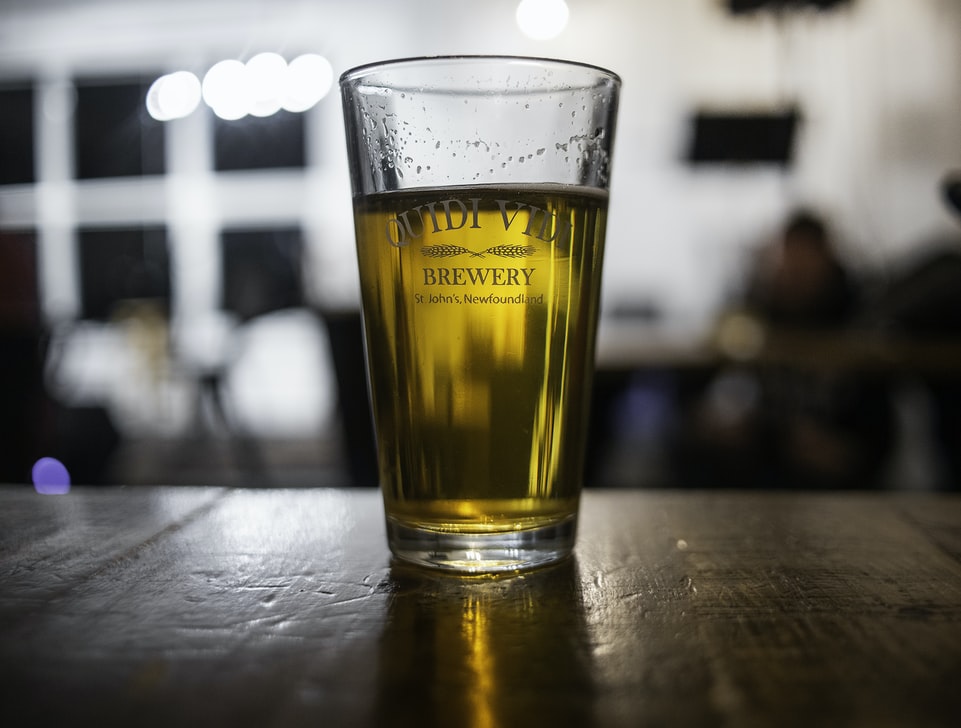So you crack open a beer, and you are wondering how much of the beer you can take that won’t affect your shape, disrupt your diet or even out of curiosity you are wondering if sugar has low or high sugar content. In most alcoholic beverages, you will be stunned to know how much sugar is really in each bottle or can of beer you take. So what is the sugar content in beer? Let’s find out below.
Does beer contain any Sugar?
The very straightforward answer to this is No, or even if there is any sugar in beer, it is non-existent. This is amazing to numerous individuals since beer has a notoriety for being a refreshment that will pack on the pounds and stretch out your waistline. Be that as it may, if you look further into how the beer is made, you’ll see why there is almost no sugar in beer or at least non-existent.
The brew is produced using four base ingredients, namely water, grain, hops, and yeast. The malted grain is the source of sugar, which gives it a characteristic sweetness all alone. This is the place the yeast comes in. These microorganisms empower maturation of the sugars in the malted grain to frame the liquor that you need. The hops include the sharp taste that is normal for beer.
So considering its entire makeup, does beer have sugar in it? This procedure demonstrates to us that the sugar is transformed into liquor. So brew doesn’t have sugar; however, it contains carbohydrates.
A recent test study on some alcoholic beverages found that most of the lagers tested contained under 1g of sugar per 100ml, with higher liquor beers ascending to 1.5g per 100ml. A low figure when compared to the sugar content of about 100ml of regular beverages like;
- coco-cola (10.6g)
- orange squash (7.8g)
- medium size cappuccino (4.3g)
Another survey appointed along with the report published by the British Beer and Pub Association (BBPA) likewise demonstrates that in spite of being seen by a dominant part as their national beverage (57%) (With wine running a distant second at just 6% and bourbon grabbing only 3% of the votes). Most of the British grown-ups (68%) erroneously feel that brew is high in sugar, 84% think it is high in calories, and 85% imagine that it is stuffing.
Strangely, ladies are almost certain than men to imagine that beer is high in sugar (74% versus 61% of men). The actualities are that brew has a shallow sugar content, particularly when contrasted with other mixed beverages, is fat-free and regularly offers the most minimal liquor quality alternative.
There has also been medicinal proof to help the dietary and medical advantages of drinking beer around the body including the positive effect of moderate drinking on the heart, bone strength, the mind, stomach, skin, hair, nails, and hormones. A more critical take a gander at logical investigations and information examination to help the advantages of moderate liquor consumption. The most recent patterns in fermenting and beer consumption include the social benefits of living close to a bar.
A professor at the Internal Medicine Department of the Hospital Clinic was able to deduce some people with a specific type of genetic attributes or those with a kind of medical condition should not drink alcohol at all. On the other hand, recent studies have also proved from experiment lead us to conclude that for most people drinking alcoholic beverages in moderate quantity which is about one drink per day for women and two per day for men, is better for their overall mortality rate than not drinking at all. It is believed that the phenols in alcoholic beverages like beer have an anti-inflammatory attribute which could account for some of the health benefits.
The survey likewise demonstrates that Britons are devouring brew in a wide range of ways, with 33% of British grown-ups (35%) saying they have taken lager rather than wine with a feast. With a few more than one out of ten (14%) revealing that they have utilized lager as a fixing in cooking and one of every ten (10%) announcing they have picked a low or non-jazzed up brew rather than a customary brew in the previous a half year. Customary ales will in general commonly change in sugar content from around 10 to 15g per a half quart.
Some light brews might be preferred and have less over 10g of carbs per a half quart and some with less 5g of carbs. Stouts, Porters and Guinness will, in general, be on the higher part of the bargain range among lagers and can have upwards of 20g of starch per a half quart. There is a wide assortment of good beers covering pale lagers through to watchmen. Tasty brews will typically have a sugar substance of 10 to 20g of carbs per a half quart.

